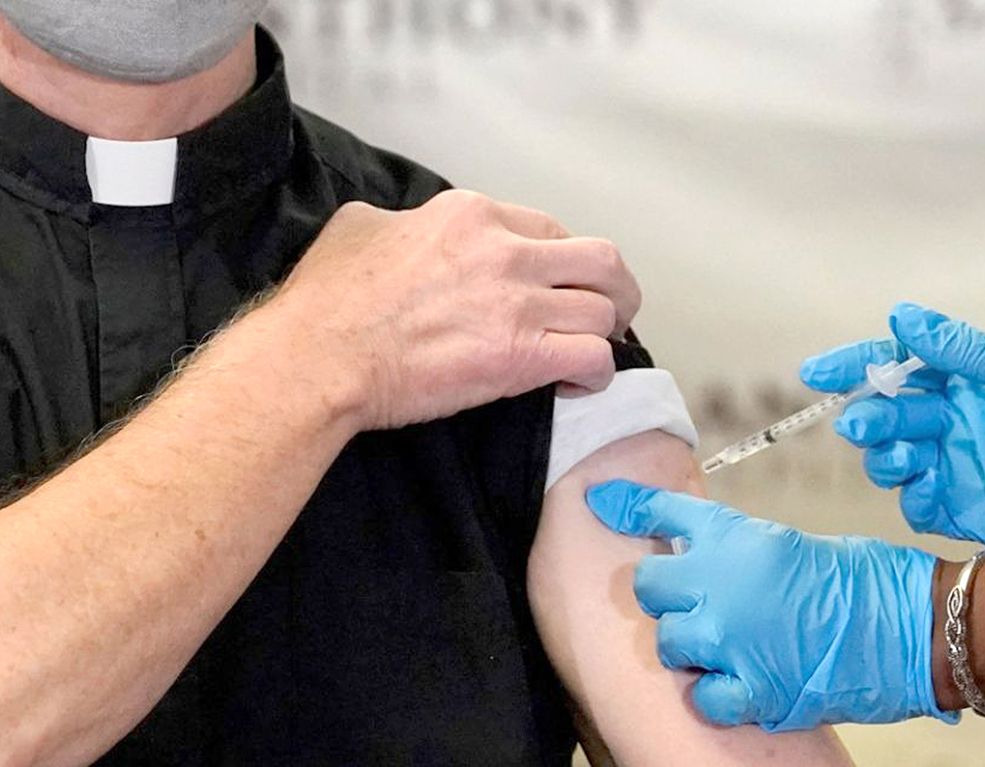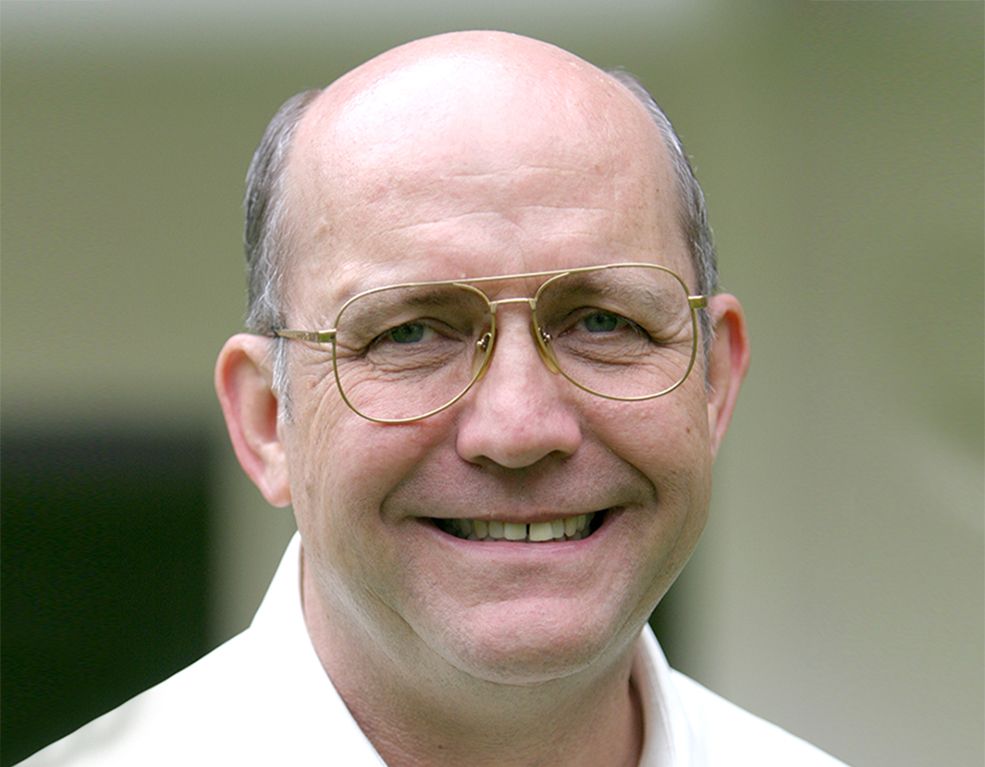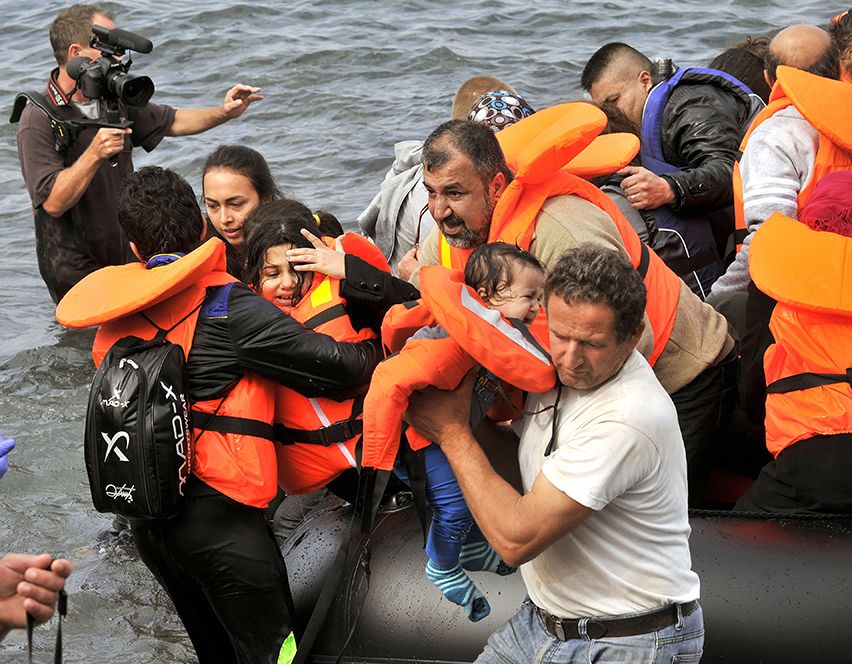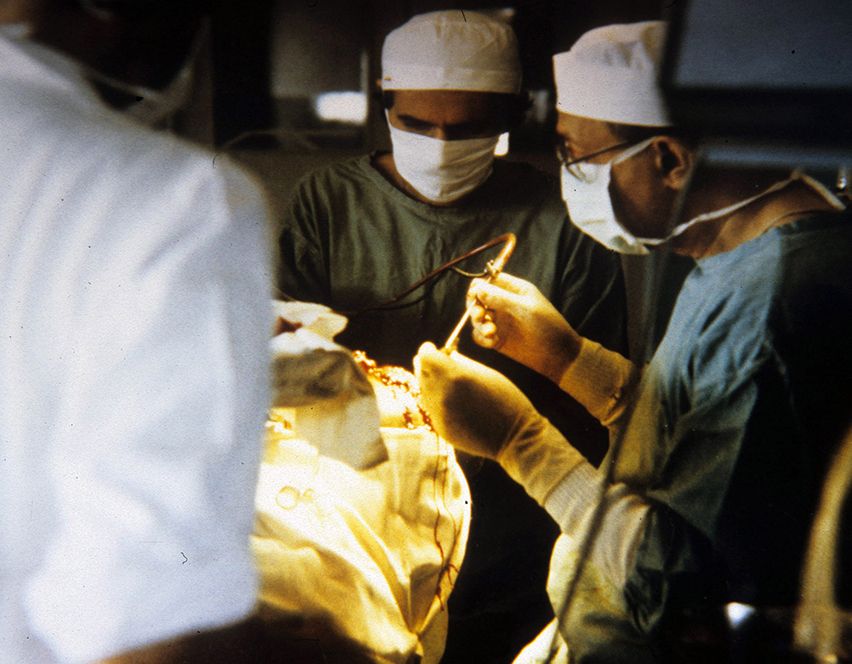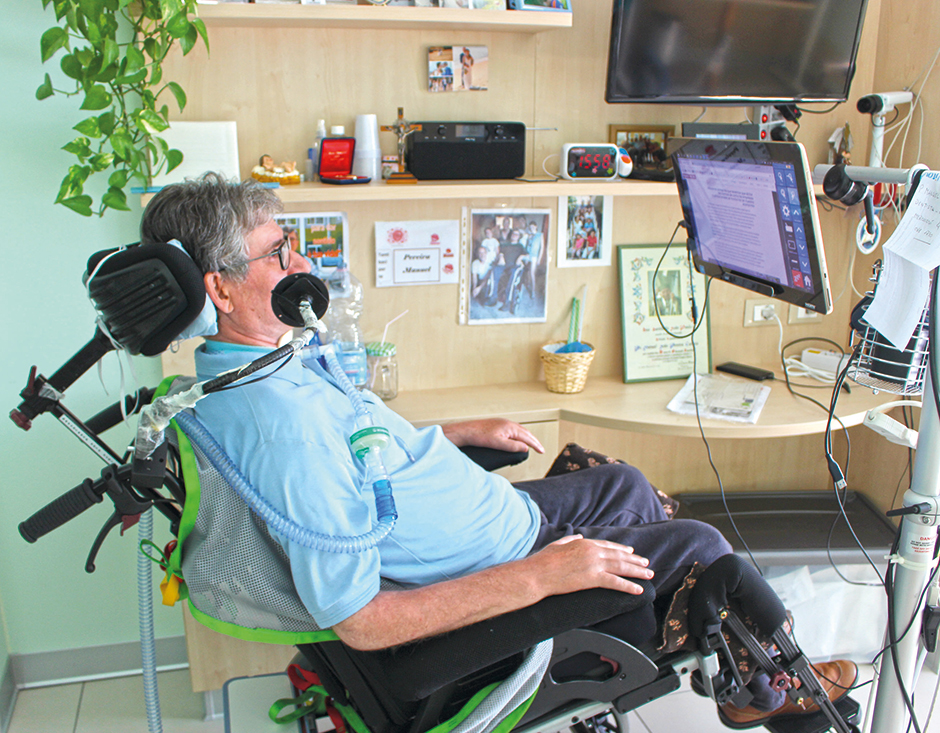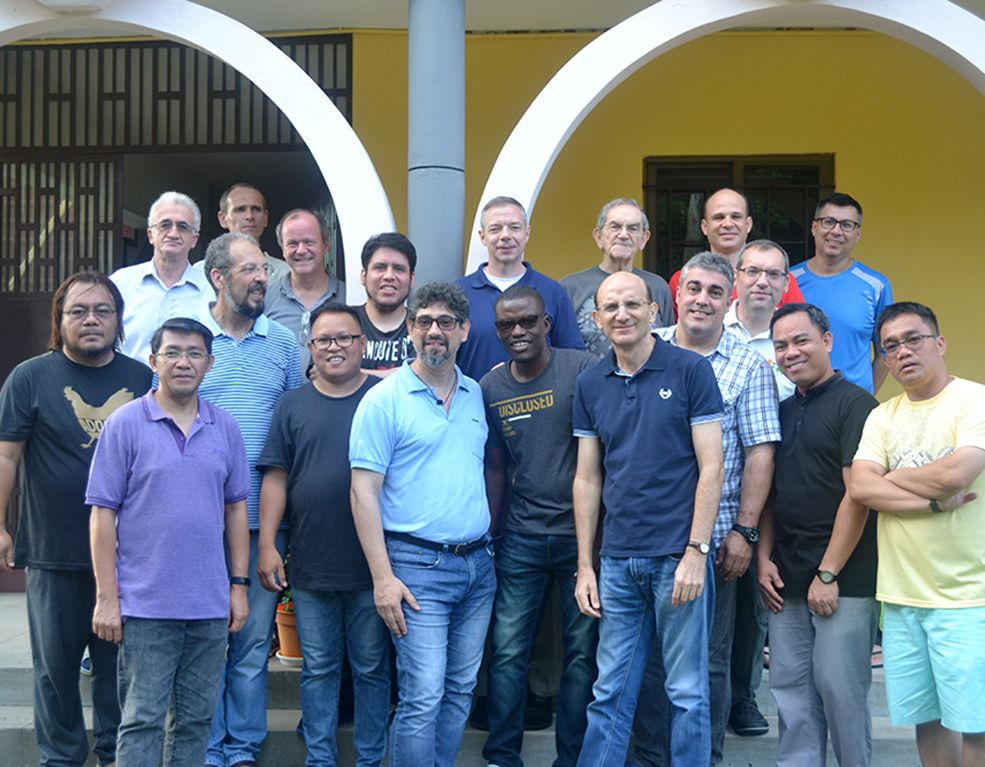This article summarizes the official Roman Catholic teaching on vaccination with links to the original documents. Please see below for an updated list of the different Coronavirus vaccines and their association with cell lines derived from aborted fetal tissue.
This document does not discuss the medical risks and benefits of each vaccine. In summary, the ultimate decision to be vaccinated is up to each individual, but Catholics are called to discern this choice both intellectually and prayerfully, and to sincerely consider the guidance of the Church.
What is the Catholic teaching on vaccination? Are some vaccines related to abortion? What about the coronavirus/COVID vaccine?
In an effort to assist the faithful in their discernment regarding vaccination, the Catholic Church has given specific teaching on the use of vaccines, including vaccines produced with and/or developed using cell lines derived from aborted fetal tissue. These vaccines are also known as “fetal cell line vaccines” or “human diploid cell line vaccines.”
The COVID-19 pandemic has brought tremendous publicity to the concern for vaccines associated with aborted fetal tissue, but the moral and ethical issues involved also apply to some routine childhood vaccinations and other adult vaccines.
The Vatican first formally addressed this issue in 2005 when Pontifical Academy for Life issued a document: “Moral Reflections on Vaccines Prepared from Cells Derived from Aborted Human Foetuses.” The Vatican Congregation for the Doctrine of Faith also approved this document.
In 2017, The Pontifical Academy for Life released a short document called “Clarifications on the medical and scientific nature of vaccination.” This clarification was written in collaboration with the Italian Bishops’ Conference and the “Ufficio per la Pastorale della Salute” (“Association of Italian Catholic Doctors”).
The 2017 document notes declining vaccination rates in Italy, encourages vaccination, and concludes, “We believe that all clinically recommended vaccinations can be used with a clear conscience and that the use of such vaccines does not signify some sort of cooperation with voluntary abortion.
While the commitment to ensuring that every vaccine has no connection in its preparation to any material of originating from an abortion, the moral responsibility to vaccinate is reiterated in order to avoid serious health risks for children and the general population.”
In response to the COVID-19 vaccines, The United States Conference of Catholic Bishops (USCCB) published two new documents, “Moral Considerations of the New COVID-19 Vaccines,” (December 11, 2020), and “Answers to Key Ethical Questions About COVID-19 Vaccines” (January 1st, 2021).
These documents restate the same concepts discussed in the prior documents with specific emphasis on the COVID-19 vaccines. The USCCB calls on Catholics to make vaccine brand choices that avoid use of vaccines associated with aborted fetal tissue, but permits the use of vaccines with remote association with evil as long as there are no alternative vaccines available and the intent is to preserve life.
Meanwhile, the Vatican also made statements on the COVID-19 vaccines. On December 21, 2020, the Congregation for the Doctrine of Faith released a “Note on the Morality of Using Some Anti-COVID-19 Vaccines.” In this document, they reiterate the concepts from the prior documents, stating that it is licit to use COVID-19 vaccines that are associated with aborted fetal tissue if no reasonable alternatives exist, and that “the licit use of such vaccines does not and should not in any way imply that there is a moral endorsement of the use of cell lines proceeding from aborted fetuses. Both pharmaceutical companies and governmental health agencies are therefore encouraged to produce, approve, distribute and offer ethically acceptable vaccines that do not create problems of conscience for either health care providers or the people to be vaccinated.”
On December 29, 2020, the Vatican COVID-19 Commission and the Pontifical Academy for Life issued a joint 20-point statement on COVID-19 vaccines entitled, “Vaccine for All: 20 Points for a Fairer and Healthier World.” This paper addresses broad issues related to vaccines, from research and development to patents and commercial exploitation, including approval, distribution and administration.
Below, we outline the ethics of the different COVID-19 vaccines as well as other common childhood and adult vaccines.
Pfizer: Pfizer/BioNTech’s coronavirus/COVID vaccine known as “BNT162b2” was developed using genetic sequencing on computers without using fetal cells. The HEK-293 abortion-related cell line was used in research related to this vaccine, but not the testing of the vaccine. This cell line originated from kidney cells from a fetus that was aborted in 1973. No cell line, fetal or otherwise, is required for the ongoing production of this vaccine. This vaccine is currently in use and requires two doses. The Pfizer/BioNTech vaccine requires “ultra-cold” storage, making distribution difficult. Currently, only hospitals and other large facilities are being considered as distribution locations for this vaccine.
Moderna: Moderna’s “mRNA-1273” vaccine does not require aborted fetal cell lines for production, but aborted fetal cell lines were used in both the development and testing of this vaccine. This vaccine is currently in use and is easier to distribute than Pfizer due to cooling requirements. It also requires two doses.
Johnson & Johnson: The J&J/Janssen COVID-19 vaccine, “JNJ-78436735” does use the abortion-related PER.c6 cell line for ongoing production. This cell line was also used in the development and testing of the vaccine. PER.c6 is a proprietary cell line owned by Janssen, a subsidiary of Johnson & Johnson, developed from retinal cells from an 18-week-old fetus aborted in 1985. This vaccine is currently in use. This is a single-dose vaccine, unlike other COVID vaccines which require 2 doses.
AstraZeneca: The AstraZeneca/University of Oxford vaccine “AZD1222” does use the HEK-293 cell line for production. This cell like was also used in both development and testing of the vaccine. The AstraZeneca vaccine is not approved in the United States. It was previously approved elsewhere, but removed from use due to safety and efficacy concerns.
Sanofi/GlaxoSmithKline: The Sanofi/GSK “COVAX” vaccine is not associated with aborted fetal cell lines for testing, development or production. GSK produces this vaccine using a modified virus cultivated on insect cells. This vaccine will likely become available to the public in summer, 2021. The Sanofi Company is also developing a different COVID vaccine that used the HEK-293 abortion-related cell line in the research phase.
Is there a moral and/or ethical difference between vaccines that require fetal cell lines for ongoing production vs. those that used these cell lines for testing/development? If possible, should Catholics make a brand choice to avoid the Johnson and Johnson vaccine (which uses fetal cell lines for ongoing production)?
Some U.S. bishops have made formal statements answering this question. On March 5, 2020, a group of bishops in leadership positions within the USCCB published a statement on the USCCB website stating, “if one can choose among equally safe and effective COVID-19 vaccines, the vaccine with the least connection to abortion-derived cell lines should be chosen. Therefore, if one has the ability to choose a vaccine, Pfizer or Moderna’s vaccines should be chosen over Johnson & Johnson’s.” Other bishops have made official statements that do not discuss the issue of brand choice and emphasize that all currently available COVID vaccines may be used in good conscience.
The Vatican has not made any official statements regarding the Johnson & Johnson COVID vaccine, although a corresponding member of the Pontifical Academy for Life did publish a personal statement that all vaccines are morally acceptable.
In an effort to dispel confusion, on March 5, a group of leading pro-life Catholic scholars published an in-depth statement on this issue on the Ethics and Public Policy Center website.
This statement was republished by the Pontifical Academy of Life on their website. They write: “As a descriptive matter, some pro-life advocates may prefer to use one vaccine rather than another in order to witness against the evil of abortion, or to signal special respect for the unborn babies whose lives were lost. Again, we agree with Bishop Rhoades that such a choice is a matter for their conscience. But we think it a mistake to say that both these vaccines are morally permissible to use and yet that some ought to be preferred to others. There appears to us to be no real distinction between the vaccines in terms of their connection to an abortion many decades ago, and thus the moral starting point is one of equivalence.” Published in Aleteia

